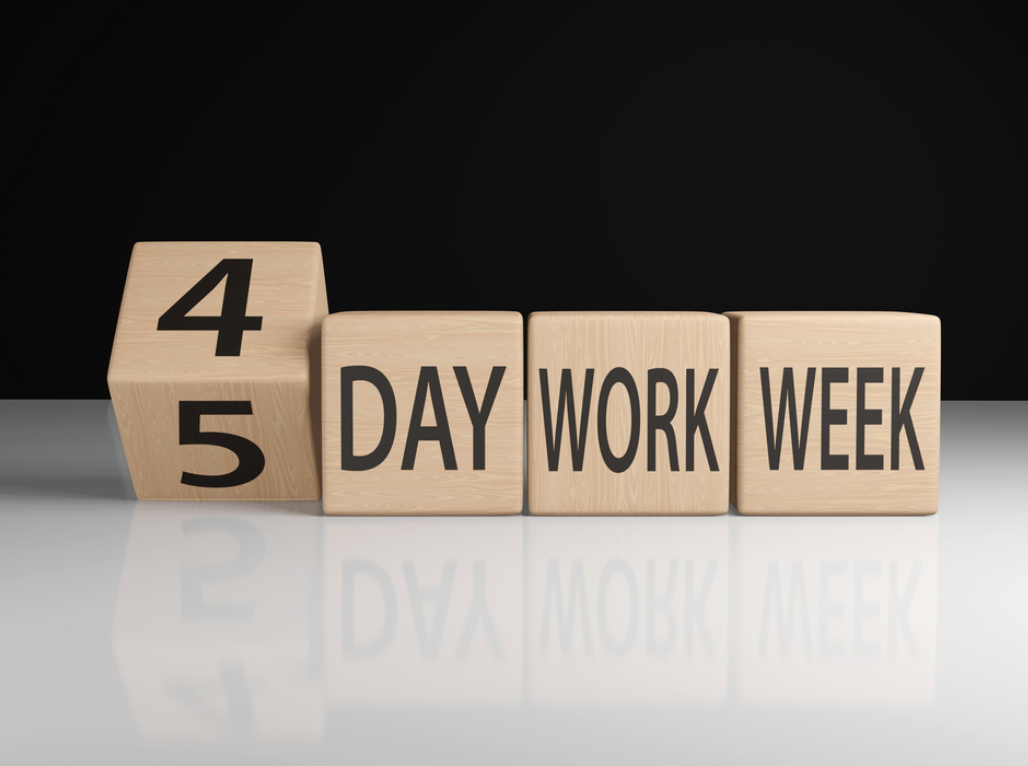Motivation waning? How to take advantage of the ‘fresh start effect’

Recent posts

From Firefighting to Innovating: 4 Strategies to Carve Out Space for Creativity
Zoe Aitken • 29 August 2024

COORDINARE’s Four-Day Week Success: 3 Powerful Lessons You Need to Know
Charlotte Rush • 29 August 2024

Everything I thought I knew about Work was Wrong: My Eye-Opening CEO Journey
Tina McIntosh • 1 August 2024
I don’t want to be the bearer of bad news, but the holiday season is officially over. Schools are back (no bad news there), the Christmas decorations have long been put away, and we’re doing our best to get back into a workday routine that doesn’t involve lounging around in our PJs until 11am (or is that just me?!).
A study has shown that January (and February for that matter) are our least productive months. (As I sit here attempting to write this article on my first day back from leave, these stats don’t feel surprising). This could be because we typically spend the earlier months of the year planning and setting goals, as opposed to completing tasks. Or it could be that, quite frankly, we’re still wishing we were by a pool sipping margaritas (or again, is that just me?).
If your motivation isn’t where you’d hoped it would be, you’re not alone. But there is some good news. This is where we can take advantage of a psychological phenomenon called the ‘fresh start effect’, which states that people are more likely to make positive changes at the beginning of a new period, such as a new year, month, or week (hence the popularity of New Year’s resolutions).
So now is the perfect time to form new habits, including new work habits. Now I know what you’re thinking; if your success rate is anything like mine when it comes to New Year’s resolutions, you’re probably beginning to question the credibility of this idea. But the key to success is to start small.
In BJ Fogg’s book Tiny Habits, he found that the key to creating new habits is to make them “tiny”. In other words, by designing behaviours that are quick and simple, we are more likely to succeed. Fogg also found that we’re more likely to succeed with habit change when we tie a new behaviour to an existing one, otherwise known as piggybacking.
So how does piggybacking work in practice? Let’s say as a work-related example, my goal is to get closer to my customers and to have more meaningful conversations with them. An existing habit that I already have in place is that I go for a 30-minute walk, three times a week. So now I’m going to piggyback these behaviours together and use my walk time to call a customer.
The strength of this idea is in its simplicity. BJ Fogg has had success with this technique doing push-ups after he pees (I’m assuming while he’s at home anyway). And I‘ve even had success adopting this approach for my morning exercise, piggybacking it with brushing my teeth.
You can take advantage of the ‘fresh start effect’ and ‘piggybacking’ by following these four simple steps to habit change:
- Start small. At the beginning of a new period, pick one specific habit that you want to form, either personal or professional. E.g., To get more active in the morning.
- Define what success looks like for your new habit so that you can track your progress. Eg., To do at least 30 minutes of exercise each morning.
- Identify a pre-existing behaviour that can act as your trigger, and that you can piggyback your new habit to. E.g. Brushing my teeth in the morning.
- Reflect and adjust. Track your progress and adjust if necessary, such as finding a new trigger behaviour if the one you’ve chosen isn’t working for you.
You can use this technique to form any new habit. Whether that be meditating more often, running more experiments on your ideas, or even sipping more margaritas. (I’ve gotta say though, the margaritas aren’t helping with my new morning exercise routine so, for now, it’s time to kill that habit). Good luck getting your motivation back and kicking off your new year with some healthy and productive new habits. And if now isn’t all that motivating for you, there’s a fresh start coming up on the first of March so you can kick back until then!